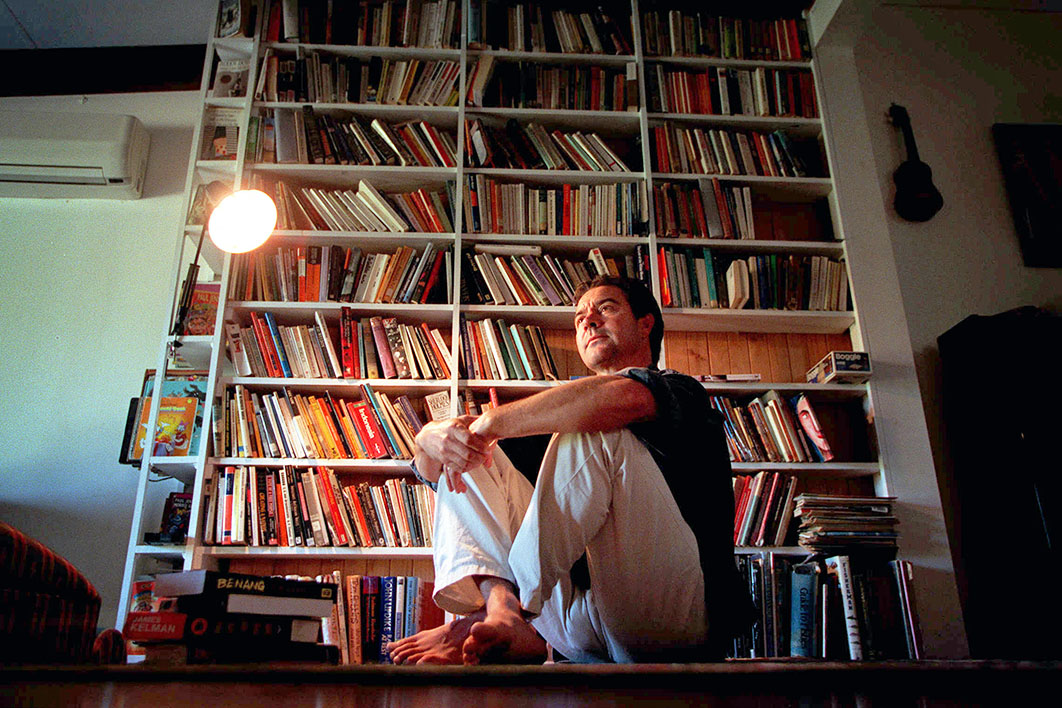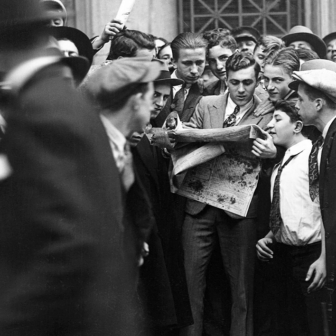Novel Politics: Studies in Australian Political Fiction
By John Uhr and Shaun Crowe | Melbourne University Publishing | $34.99 | 277 pages
All fiction is political, some critics would argue, regardless of the author’s intention. The choice of genre and subject, the attitudes endorsed or sympathies withheld — all these imply ideological positions even in a novel with no declared allegiance. Other novels are written for openly political purposes, of course, or to deal with political crises — and then there are those by serving politicians, among them the nineteenth-century British prime minister Benjamin Disraeli and our own Peter Beattie, former premier of Queensland, who published a political thriller while a backbencher. Novels are particularly suited to examining how political decisions impinge on personal lives, and in some cases they have changed popular attitudes to political questions.
In Novel Politics, political scientists John Uhr and Shaun Crowe argue that literature can reveal much about how political ideas circulate in Australia. In defining political fiction, the subject of an undergraduate course they have taught at the Australian National University, they follow Irving Howe’s distinction between the “political” novel, which confronts readers with the consequences of political ideas, and the “social” novel, which takes “society for granted” — George Eliot’s social philosophy versus Jane Austen’s wry observation, in other words. Their interest is in novelists as public intellectuals rather than as observers and entertainers.
Because their broad definition of politics covers many more Australian novels than could be discussed in a book of this length, Uhr and Crowe use six case studies to demonstrate their ideas. Uhr examines three pre-Federation novels, by Catherine Helen Spence, Rosa Praed and Catherine Martin, while Crowe looks at a novel each by contemporary writers Tim Winton and Christos Tsiolkas, and two by Kim Scott.
Spence’s Clara Morison is an amusing novel, reflecting her devotion to Jane Austen in the period before she encountered George Eliot, but Uhr concentrates on how it deals with the nature of civic virtue in the new “free” colony of South Australia. Spence was the first woman to stand for public office in Australia, and it may be that Uhr and Crowe’s interest in her work partly reflects her increasingly active role in social and political reform.
Rosa Praed also had something of the insider’s perspective. She was the daughter of Thomas Murray-Prior, the Queensland postmaster-general during the period when the post became a political ministry, and for a time acted as social companion to her widowed father, learning about the machinations of colonial politics. In Policy and Passion she writes directly about political intrigue in the Australian colony, and Novel Politics focuses on her analysis of civic virtue and vice in a new society.
Uhr reads Catherine Martin’s An Australian Girl not only as a “New Woman” novel concerned with the possibilities for women in the new society, but also as an exploration of the era’s philosophical debates. The heroine of this long novel is committed, in turn, to Newman’s notion of Catholicism, to Kant’s philosophy and then to social democracy. Like Spence and Praed, Martin was writing at a time when fiction was one of the few avenues for unenfranchised women to participate in debates about the future of the colonies.
By contrast, the three contemporary novelists are all tertiary-educated men in a position to claim some public attention outside their fiction. Crowe’s chapters cover the identity politics of recent decades and some of Australia’s most pressing challenges — environmental degradation, inequality, and the possibilities for reconciliation between settler and Indigenous communities.
All three of these novelists are political activists. Interestingly, only Tim Winton gained close attention in Brigid Rooney’s Literary Activists: Writer-Intellectuals and Australian Public Life (2009), and only Kim Scott contributes a statement to Bernadette Brennan’s collection of writers on social commitment Just Words? Australian Authors Writing for Justice (2008). But it is the third of Crowe’s subjects, Christos Tsiolkas, who is the most traditionally political in his writing about class and the place of the sexual outsider.
Crowe finds the source of Winton’s environmentalism in his writing’s sensual response to nature, particularly in Dirt Music. He sees Winton’s determined identification with “redneck” attitudes to the environment as “prioritising earned wisdom over the mediated lessons of science.” Winton’s characters often earn their livelihood from nature, and don’t view it sentimentally, and Crowe makes the interesting point that Winton’s championing of Ningaloo Reef follows from his artistic engagement with the natural world rather than a more rational consideration of scientific evidence.
Tsiolkas is a more complicated case, with his self-consciousness about political theory and his allegiance to both gay liberation and the migrant experience. As this book suggests, his negotiation of the contradictions in these allegiances makes for some of the more interesting moments in his fiction. Personally, though, Dead Europe strikes me as more politically engaging (and disturbing) than the popular The Slap, which Crowe examines, with its tenuous narrative premise and selective sympathy for its characters.
For its part, Scott’s That Deadman Dance is astonishing in its disciplined account of early contact history and the brief possibility of a more equal and reconciled nation. At this point, Crowe is inclined to let the novelist make the political argument, limiting himself to a description of the novel’s content and context, including Scott’s more recent novel, Taboo.
Novel Politics opens up a debate about fiction’s role in circulating political ideas and its capacity to engage readers’ imaginations in unpredictable ways. Dirt Music and The Slap were both popular among readers who may have sympathised with their political positions, but they also stimulated wider discussions about current issues. That Deadman Dance, like Scott’s Benang, makes greater demands on its readers but also provides new insights into first-contact history. Of the nineteenth-century novels, Clara Morison has been the most widely read and appreciated, perhaps because its themes are carried along by its comedy, whereas the full version of An Australian Girl requires a considerable commitment of time and attention.
Uhr and Crowe offer distinctive readings of these novels. They anticipate that the people they call “traditional literary critics” may smile at their naivety in taking on such a broad topic, but they might have been more sensitive to the range of contemporary critical writing. Their recourse to important books of the 1970s — Tom Inglis Moore’s Social Patterns in Australian Literature, Brian Kiernan’s Images of Society and Nature and Geoffrey Serle’s From Deserts the Prophets Come — seems to imply that Australian literary studies have somehow ignored the political and social dimensions of fiction for the past forty years. David Marr’s reference on the cover to the need for Australian fiction to be rescued from a “deadening simplicity of patriotic tradition” overlooks a vast amount of feminist and postcolonial critique in recent decades.
Novel Politics will entice those who read Australian literature to propose their own list of political novels. As well as a range of feminist novels from the 1970s and 80s, mine would include Joseph Furphy’s Rigby’s Romance, Christina Stead’s Seven Poor Men of Sydney, Frank Hardy’s But the Dead Are Many, Melissa Lucashenko’s Too Much Lip and, most of all, given our current situation, Andrew McGahan’s Underground. The field is large, and the authors of Novel Politics suggest that the time has come for political scientists to embrace it. Perhaps we will see regular “Politics and Literature” conferences and a “Politics and Fiction” society to continue their work. •
Policy and Passion and the first edition of An Australian Girl can be downloaded for free as pdfs from the University of Sydney Library. Clara Morison is available commercially as an ebook.




